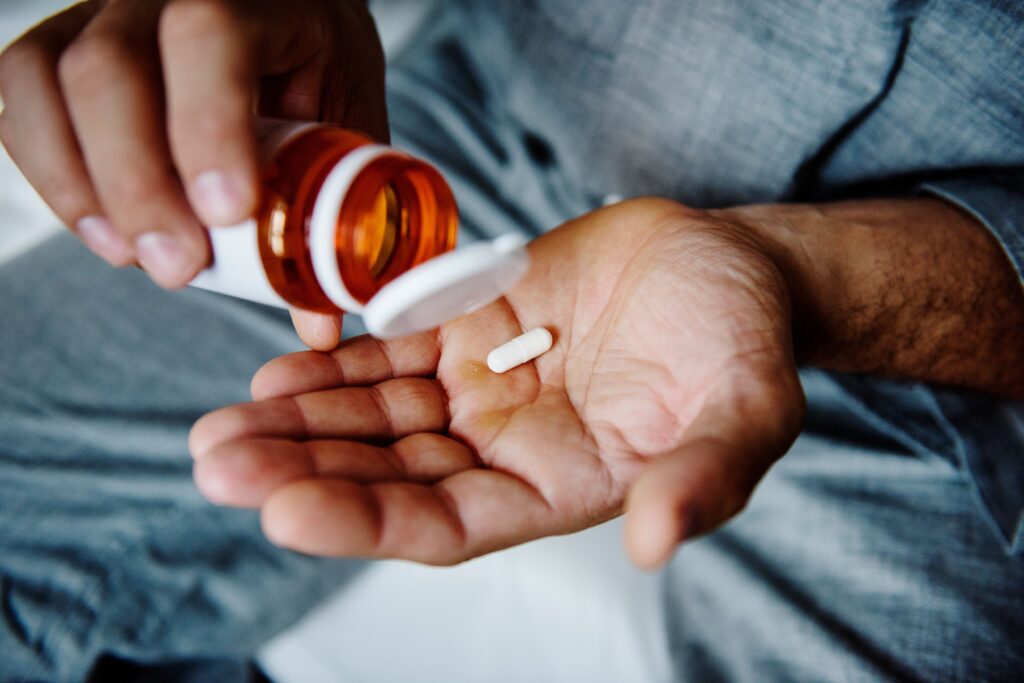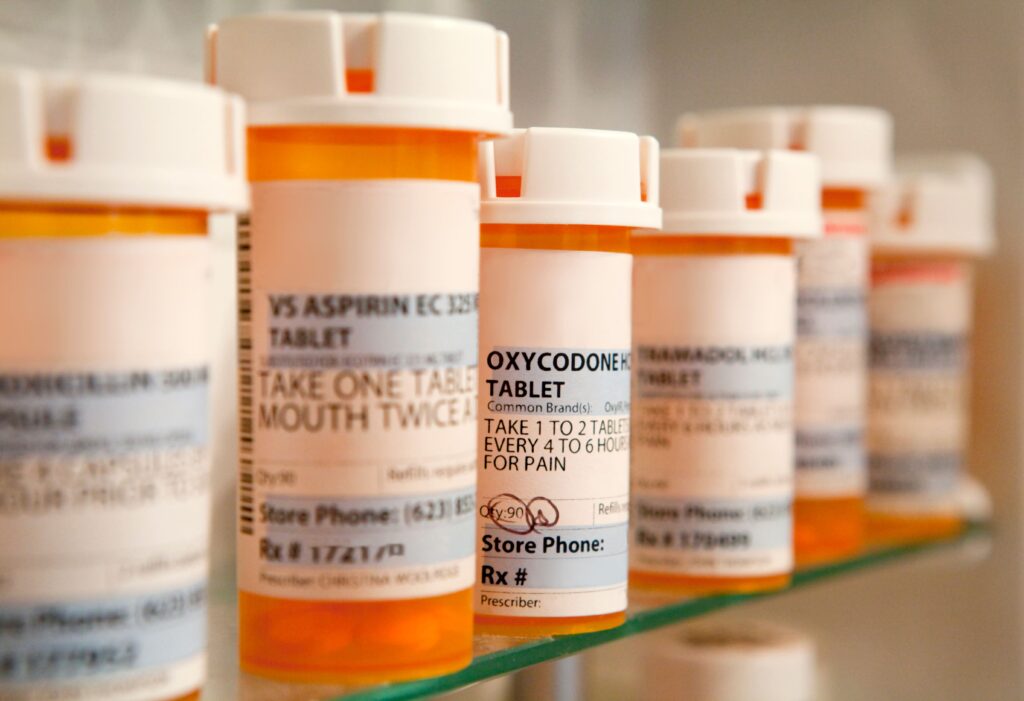Prescription Drug Detox
Prescription drug addiction has impacted many lives over the past few decades. Due to the nature of how this addiction develops, it can be more challenging to prevent than other types of substance use disorders. Detox is the first step in treatment. For those wondering what happens during this process, it allows you to rid your body of all mind-altering substances and toxins. Fortunately, prescription drug detox in Atlanta, Georgia, is dedicated to guiding clients safely and smoothly through the detox process.
How Prescription Drug Addiction Develops
In many cases, prescription drug addiction can happen accidentally. For example, a doctor may prescribe a potentially addictive medication to treat pain or another medical condition, and a person becomes dependent on the drug. Some drugs are not as effective for long-term use, and patients may increase their dosage. This builds tolerance, leading to dependency. Therefore, people with chronic pain have an increased risk of developing dependency and addiction as they try to control their pain. Furthermore, some patients decide to continue taking medication because they experienced withdrawal symptoms when they tried to discontinue it.
Another way that prescription drug addiction develops is when people take these drugs without a prescription. There can be different reasons for this, such as attempting to self-medicate with a family member’s medication to treat a condition. In other cases, these drugs may be taken for their effects, whether illegally purchased or given out by peers. In any case, many people do not know how addictive a medication can be or the dangers involved.

Prevalence and Signs of Prescription Drug Addiction
According to the National Survey on Substance Use and Health (NSDUH), an estimated 2 million people misuse prescription drugs yearly. Tragically and consequently, almost 15,000 people die every year as a result of prescription medication overdose. Therefore, it is vital that individuals identify addiction in themselves and their loved ones as well.
Common signs of prescription drug addiction include:
- Borrowing medications
- Pharmacy shopping (i.e., visiting several providers/pharmacies to obtain prescriptions)
- Losing prescriptions
- Falling behind at work or in school
- Mood swings and abrupt personality changes
- Spending the majority of time using or recovering from drugs
- Experiencing financial hardship due to spending on drugs
- Illegal activity and risky behavior
The Need for Prescription Drug Detox in Atlanta
According to the Centers for Disease Control (CDC), there was a 16% increase in prescription opioid-involved deaths from 2019 to 2020 nationwide. The CDC states that in 2020, “an average of 44 people died each day from overdoses involving prescription opioids.” Georgia was among 19 states that saw an increase in these deaths. Due to this crisis, professional services to detox from prescription drugs in Atlanta are crucial. As the largest city in Georgia, Atlanta is home to over 496,000 people.
Your journey to a healthier, more fulfilling life starts here. The Retreat of Atlanta’s caring professionals are committed to providing individualized treatment that respects your unique needs. Reach out now to secure your place in our supportive community and take the first step towards a brighter future.
Begin Your Treatment Today
What Are The Most Commonly Abused Prescription Drugs?
Prescription medications are an essential part of managing pain, reducing anxiety, and maintaining overall health. In doing so, they further produce euphoric, numbing, and tranquilizing effects. Consequently, there are countless misused prescription drugs on the market. The following highlights common prescription drugs that people become addicted to.
Prescription Opioids
It is no secret that our nation is in the midst of an opioid crisis. These painkillers are heavily used across the United States, drastically increasing overdose rates and deaths. Additionally, some opioids, such as heroin, are illicit. However, most are prescribed in cases of chronic pain, surgery, or terminal conditions.
Highly addictive opioids include:
- Morphine
- Hydrocodone
- Oxycodone
- Fentanyl
- Codeine
CNS Depressants
CNS depressants slow the central nervous system. These medications have calming properties and treat anxiety, panic disorder, and insomnia. Specifically, a widely misused type of CNS includes benzodiazepines. At our center for prescription drug detox in Atlanta, we treat addiction to benzos such as Xanax.
Types of benzos include:
- Xanax (alprazolam)
- Klonopin (diazepam)
- Valium (clonazepam)
- Ativan (lorazepam)
Additionally, there are other types of CNS depressants, such as barbiturates and sedatives:
Prescription Stimulants
Commonly, those under intense academic or professional stress may misuse prescription stimulants. These drugs produce a synthetic burst of energy, hence their popularity.
Examples include:
- Adderall (amphetamine/dextroamphetamine)
- Dexedrine (dextroamphetamine)
- Ritalin/Concerta (methylphenidate)
- Vyvanse (lisdexamfetamine)
Prescription drug detox centers in Atlanta can help a person deal with stimulant withdrawal symptoms.

Prescription Drug Withdrawal Symptoms
The exact symptoms of prescription drug withdrawal depend on the type of medication someone has used. Additionally, they also depend on the severity of the individual’s addiction. Therefore, withdrawal symptoms can occur in addition to cravings. Due to the painful and dangerous nature of withdrawal symptoms, it is essential to detox at a credible and licensed facility.
Common examples of prescription drug withdrawal symptoms include:
- Sweating
- Chills
- Changes in sleep patterns
- Fever
- Nausea, vomiting, and diarrhea
- Muscle aches and pain
- Mood swings
- Trouble concentrating
- Feelings of anxiety and depression
- Tremors and spasms
- Elevated heart rate and blood pressure
- Hallucinations and delusions
- Seizures
Prescription Drug Withdrawal Timeline
The detox duration depends on the type of drug used, how often someone takes it, and how much someone takes at a time. It is important to note that those detoxing from prescription drugs are at risk for post-acute withdrawal symptoms (PAWS). These symptoms can last for weeks, even months, after detox. Generally, these side effects are mild and include cravings, insomnia, and feelings of sadness. Fortunately, a medically-supervised detox program can reduce the effects of PAWS.
The following highlights the different prescription drug withdrawal timelines:
Opioids
The opioid detox timeline depends on whether the opioid is short-acting or long-acting. Short-acting opioids include morphine and immediate-release forms of opioid painkillers such as fentanyl, oxycodone, and hydrocodone. Those detoxing from short-acting opioids begin showing withdrawal symptoms as early as 8 hours and as late as 24 hours after their last use. These side effects continue for up to 10 days. Controlled or extended-release forms of opioids are considered to be long-acting. In these cases, withdrawal symptoms surface within 36 hours after a person’s last dose and have the potential to continue for over two weeks.
Stimulants
Stimulant detox withdrawal symptoms begin and peak within 24 to 72 hours after a person’s last dose. These side effects usually subside within 7 to 10 days. However, symptoms such as depression, mood swings, and insomnia often continue for an additional week.
CNS Depressants
Those detoxing from CNS depressants start experiencing withdrawal symptoms 12 to 24 hours after their last dose. These symptoms peak within 24 to 72 hours. Finally, side effects gradually begin to fade after this period. Moreover, it is not uncommon for those detoxing from benzodiazepines to continue experiencing symptoms for up to 14 days.
What Is Prescription Drug Detox in Atlanta Like?
The Retreat of Atlanta’s prescription drug detox center assists patients in taking the first step toward recovery. Additionally, all of our drug and alcohol detox programs are medically supervised, meaning you will be under the close watch of our care team. First and foremost, during this time, we monitor your vitals to ensure you remain physically stable. Then, if a complication should occur, we are there 24/7 to offer support and assistance.
Finally, we will administer specific medications to reduce your withdrawal symptoms and relieve your cravings as well. Following detox, we offer a variety of addiction treatment services in Atlanta. These include therapeutic interventions such as cognitive-behavioral therapy, dialectical behavior therapy, individual therapy, group therapy, and family counseling. Furthermore, we accept Aetna, TRICARE, and PHCS insurance for qualifying patients.

Medications Used During Prescription Drug Detox at Retreat of Atlanta
Medication-assisted treatment (MAT) reduces the severity of withdrawal symptoms, preventing dangerous and potentially fatal reactions. MAT also prevents relapse as those participating due to reduced cravings.
Medications commonly administered during prescription drug detox include:
- Clonidine: Clonidine addresses the physical symptoms of withdrawal, making the overall process more tolerable.
- Methadone: Most often used in opioid detox, this opioid agonist helps to minimize withdrawal symptoms and ease cravings by tricking the brain into thinking a person is still under the influence of opioids; however, methadone does not get people high.
- Buprenorphine: This partial opioid-agonist prevents long-term relapse. It works very similarly to methadone but is not as potent.
- Antidepressants/Anti-anxiety medications: Those detoxing from benzodiazepines are subject to rebound anxiety and depression. These medications help to reduce these unpleasant feelings while keeping individuals from panicking.
Does Insurance Cover Atlanta Detox Centers?
The Affordable Care Act requires that all public insurers provide some form of substance use coverage; this includes detox at prescription drug detox centers. Thus, it is best to refer to your particular policy to review your deductible and check the amount of detox coverage available. Keep in mind that your insurance requires you to receive treatment from an in-network provider. Fortunately, Retreat of Atlanta is proud to accept the majority of insurance plans to make our services as accessible as possible.
Break Free of Addiction With Prescription Drug Detox in Atlanta, GA
Our compassionate team of experts is well-versed in the most cutting-edge aspects of evidence-based addiction treatment. We offer detox for all types of substance and alcohol dependence. Located in Atlanta, Georgia, our nurturing environment prioritizes your comfort, protection, and privacy. Therefore, you can rely on us to provide the assistance you need during prescription drug detox in Atlanta.
Call The Retreat of Atlanta or use our contact form to get started on your recovery journey today.

![]()